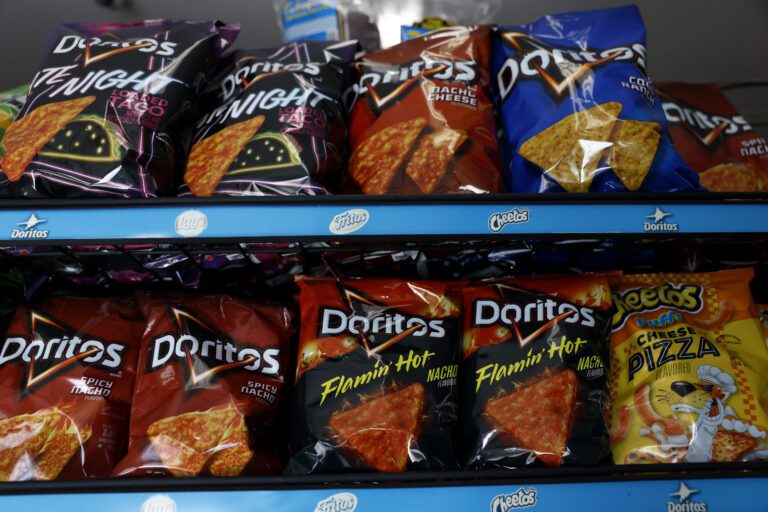Texas Poised to Enforce Warning Labels on Junk Food: A New Era in Food Safety
Texas is on the cusp of implementing significant changes in food labeling regulations, particularly targeting popular junk food products. If Senate Bill 25 receives the final approval from Governor Abbott, it may require manufacturers of iconic snacks like Doritos and Mountain Dew to display warning labels on items containing specific banned or restricted ingredients.
What Senate Bill 25 Entails
The bill, which has garnered bipartisan support in both houses of the Texas legislature, mandates that major food corporations such as General Mills and PepsiCo adhere to strict labeling guidelines. The proposed labels will indicate that certain products are “not recommended for human consumption.”
Key Ingredients Under Scrutiny
Products affected by Senate Bill 25 will include those containing:
- Bleached flour
- Synthetic food dyes
This legislative move would place Texas among the leaders in regulating large food manufacturers in the United States, symbolizing a departure from the state’s historically lenient regulatory stance.
Endorsement and Health Advocacy
The bill has received enthusiastic backing from health advocates, including Robert F. Kennedy Jr., who serves as Texas’ health and human services secretary. This initiative aligns with his broader "Make America Healthy Again" campaign, which aims to eliminate harmful additives believed to contribute to health problems such as inflammation, allergic reactions, and cancer risks.
Key Points from Mr. Kennedy’s Advocacy:
- Dyes and Seed Oils: Advocates push for the removal of synthetic dyes and seed oils.
- Public Health: The overarching goal is to improve public health outcomes across Texas.
Pushback from Food Manufacturers
Despite the bill’s intentions, food industry representatives are voicing strong opposition. A coalition of food manufacturers has urged the Texas legislature to reconsider the implications of these new labeling requirements. Their concerns include:
- Economic Impact: The coalition argues that such regulations could destabilize local and regional economies and limit food access.
- Legality and Confusion: It has been pointed out that the labeling provisions might inaccurately suggest that these ingredients are inherently dangerous based solely on bans enacted by foreign governments, as opposed to established guidelines set by Texas regulators or the U.S. Food and Drug Administration (FDA).
Statements from Industry Representatives
John Hewitt, the Senior Vice President of State Affairs for the Consumer Brand Association (CBA), commented on the issue:
“The ingredients used in the U.S. food supply are safe and have been rigorously studied following an objective science and risk-based evaluation process. The labeling requirements of SB 25 mandate inaccurate warning language, create legal risks for brands, and drive consumer confusion and higher costs.” Source: Fortune
Future of Senate Bill 25
As of now, Governor Abbott’s office has not confirmed whether he intends to sign the bill. However, they have expressed ongoing commitment to ensuring that Texans have access to healthy food options. Abbott’s office commented:
“Governor Abbott will continue to work with the legislature to ensure Texans have access to healthy foods…”
Conclusion
If Senate Bill 25 is signed into law, Texas may lead the nation in a significant regulatory shift regarding food labeling practices. This would not only affect how companies market their products but could also influence public perception and informed choices regarding diet and health.
Implications for Consumers
- Awareness: Consumers may become more conscious of the ingredients in their foods.
- Health Choices: The labeling initiative could lead individuals to make healthier dietary choices based on clearer information.
Texas is at a crossroads, and how this legislation unfolds could set a new standard for food safety regulations in the United States. Stay tuned for updates on the governor’s decision on this pivotal bill.
Additional Resources
For more information on food safety regulations and health initiatives, visit:
This comprehensive approach to addressing junk food regulations highlights the ongoing dialogue between health advocates and the food industry, paving the way for potential changes in consumer behavior and public health standards in Texas and beyond.


